High Blood Pressure Social Media Resources
Share these graphics and sample posts to help raise awareness about high blood pressure, a major risk factor for heart disease.



Getting regular physical activity helps lower and control blood pressure.
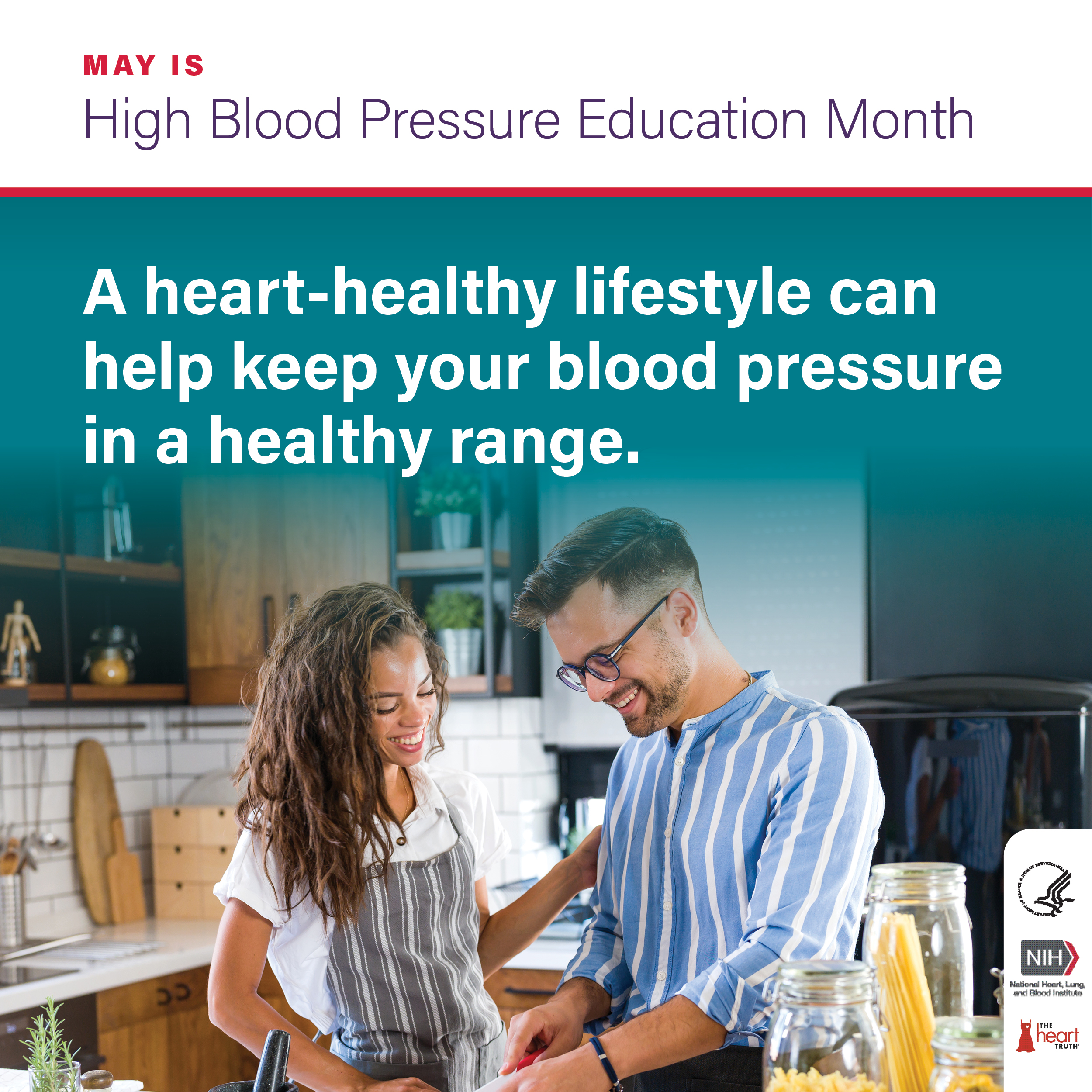

A heart-healthy lifestyle can help keep your blood pressure in a healthy range.
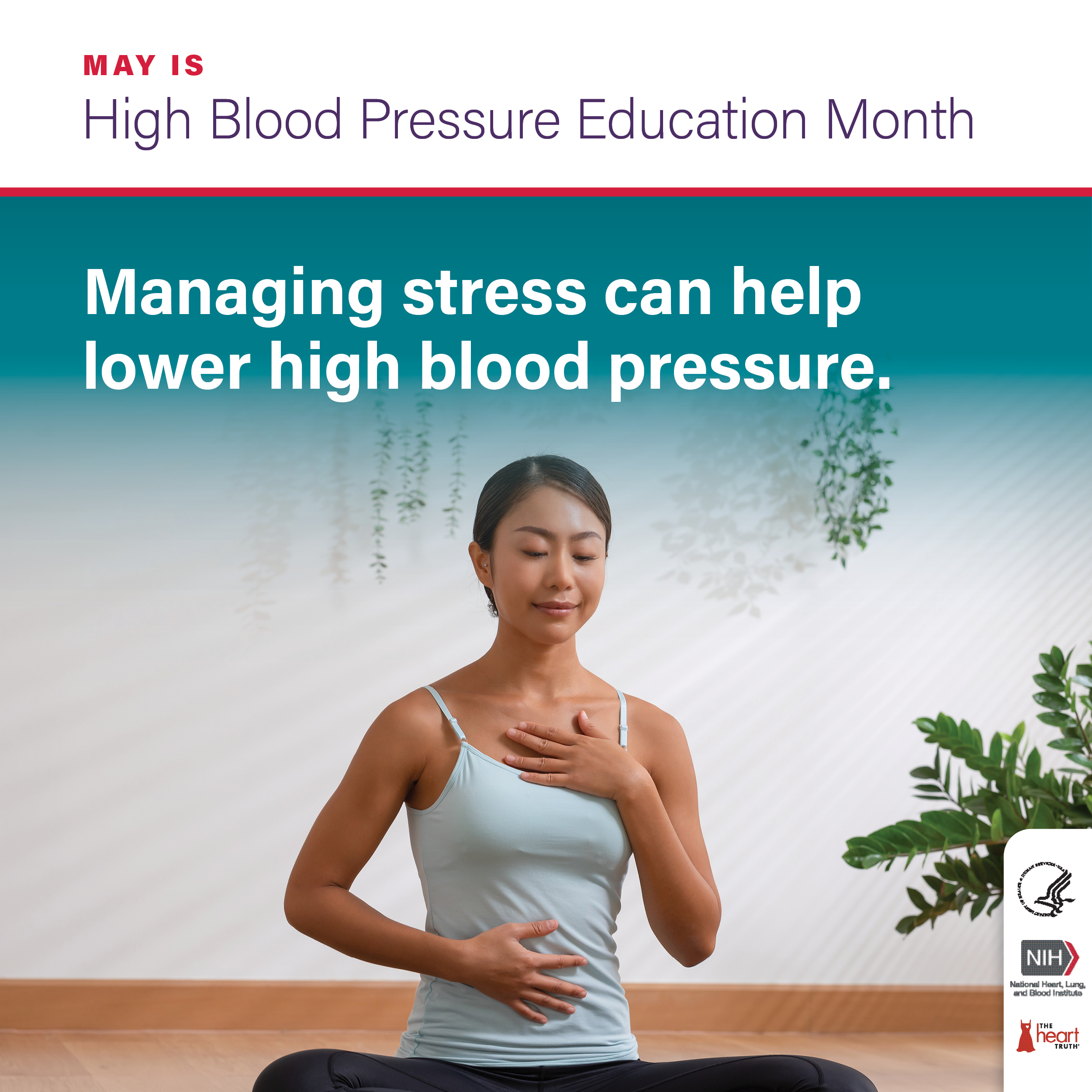

Managing stress can help lower high blood pressure.
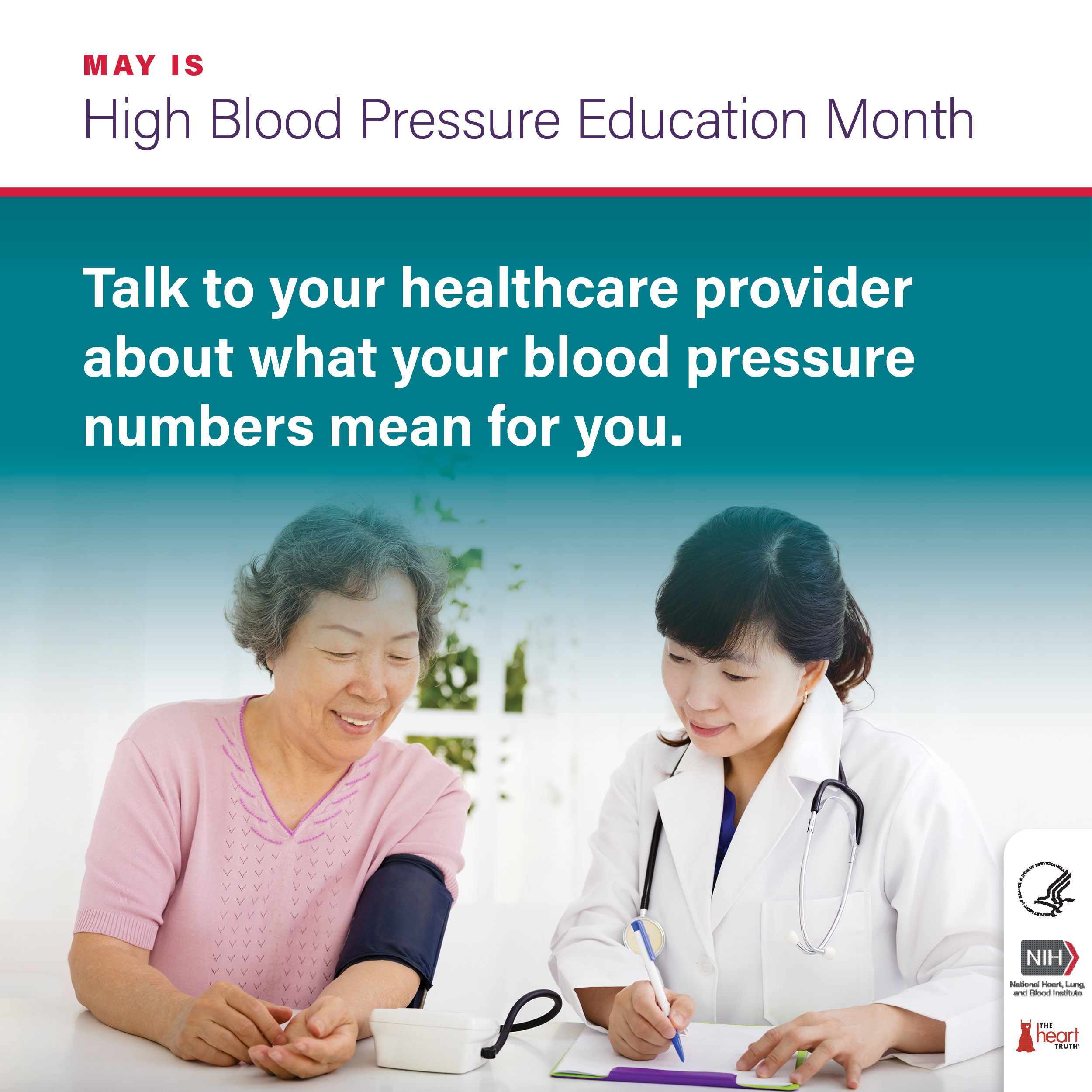

Talk to your healthcare provider about what your blood pressure numbers mean for you.


If you're planning to become pregnant, are pregnant, or recently had a baby, talk to your healthcare provider about high blood pressure and managing your heart health.
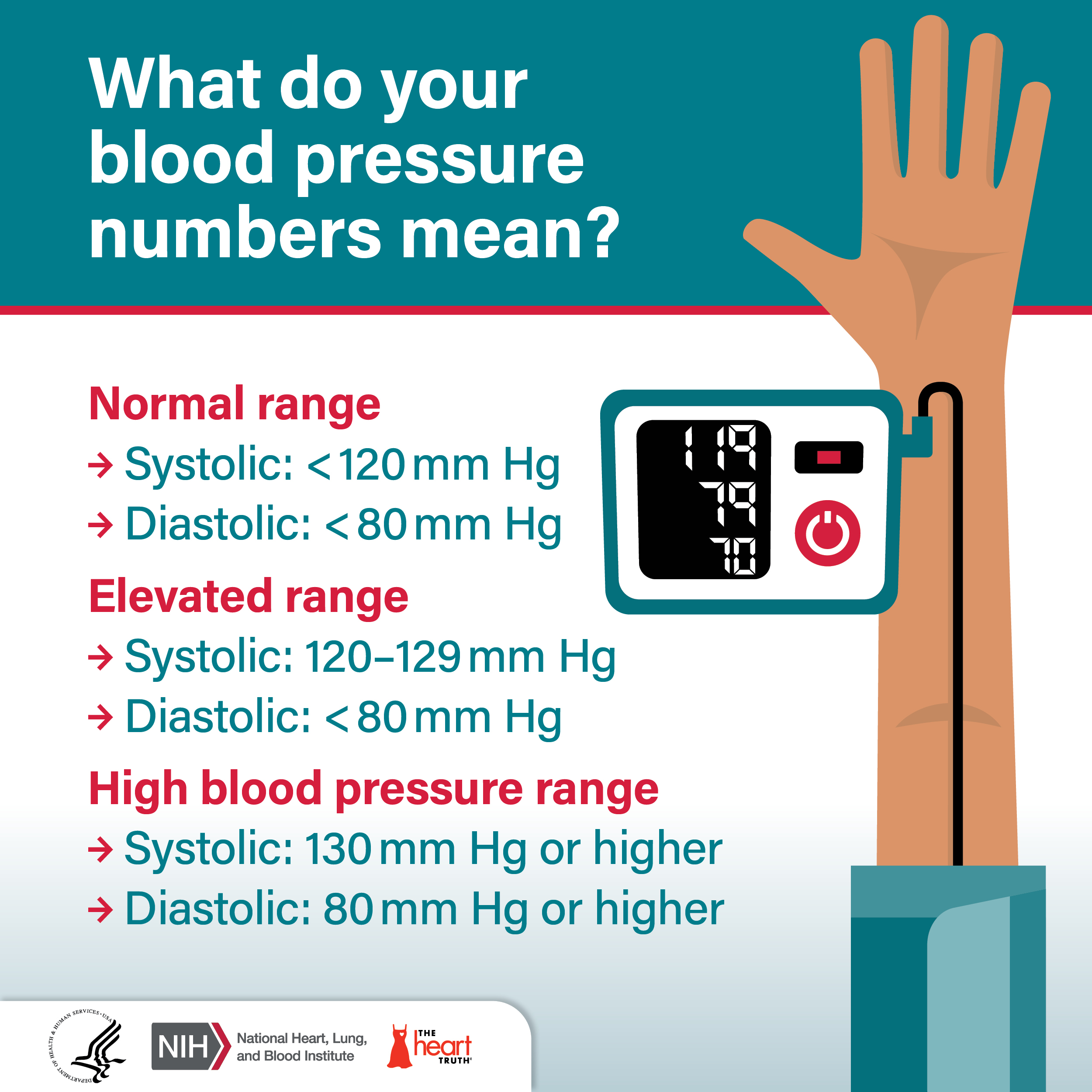

Normal range:
- Systolic: <120 mm Hg
- Diastolic: <80 mm Hg
Elevated range:
- Systolic: 120 - 129 mm Hg
- Diastolic: <80 mm Hg
High blood pressure range:
- Systolic: 130 mm Hg or higher
- Diastolic: 80 mm Hg or higher


1. What was my blood pressure reading and what do the numbers mean for me?
2. How often should I have my blood pressure checked?
3. How can I control my blood pressure if it's high?
4. Can any medicines that I take affect my blood pressure?
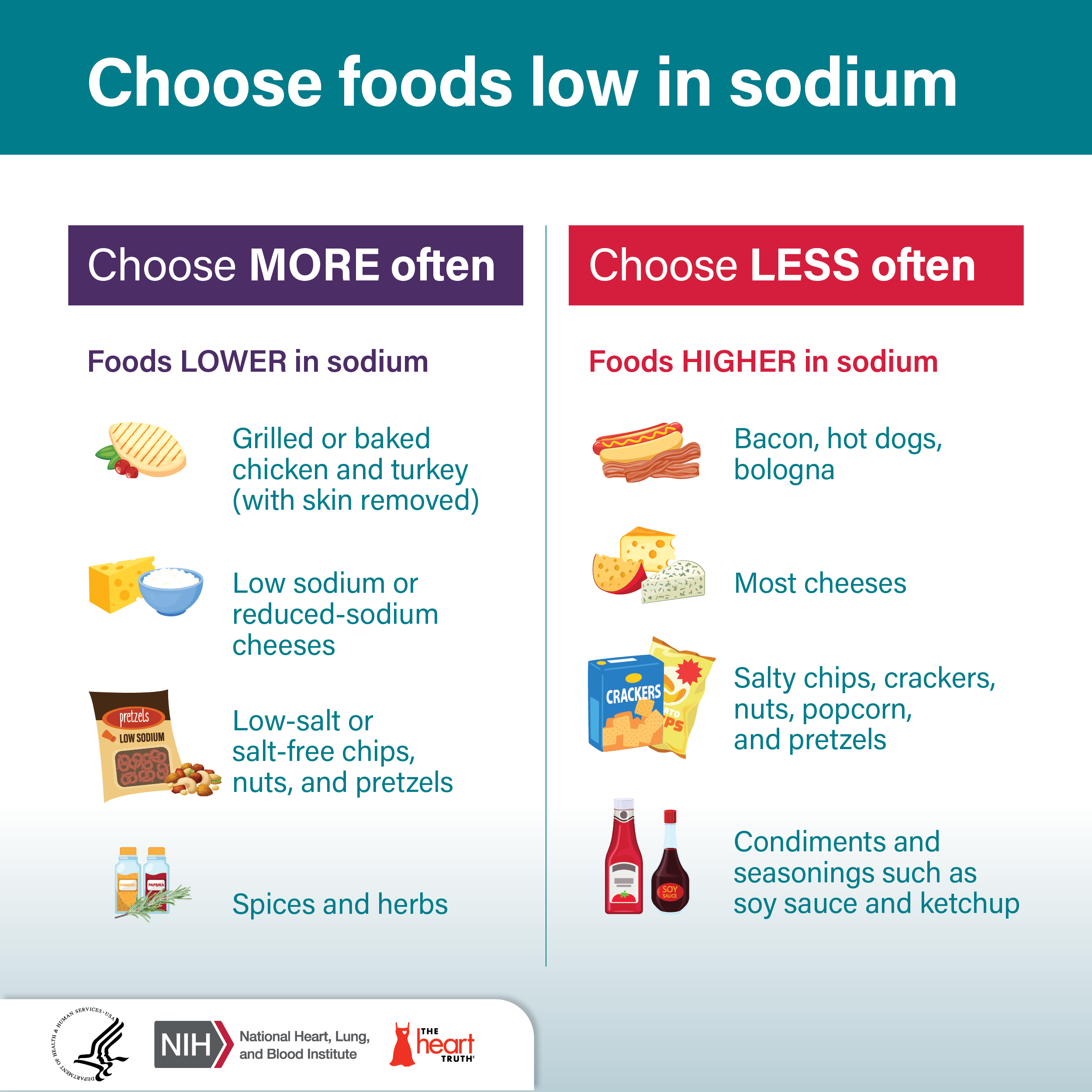

Choose foods lower in sodium more often: Grilled or baked chicken, low sodium cheeses, low-salt nuts and pretzels, spices and herbs.
Choose foods higher in sodium less often: Bacon, hot dogs, most cheeses, salty chips, crackers or nuts, condiments such as soy sauce and ketchup.


Before:
- Avoid exercising, drinking caffeine, or smoking for 30 minutes prior.
- Go to the bathroom.
- Uncover your arm for the cuff.
- Sit and relax for at least 5 minutes.
During:
- Put your feet flat on the floor.
- Don't talk.
- Rest your arm on a table so it's supported and at the level of your heart.


Blood pressure higher than 130/80 mm Hg can cause serious health problems:
- Heart disease
- Stroke
- Kidney disease
- Dementia
Have your blood pressure checked at every healthcare provider visit.
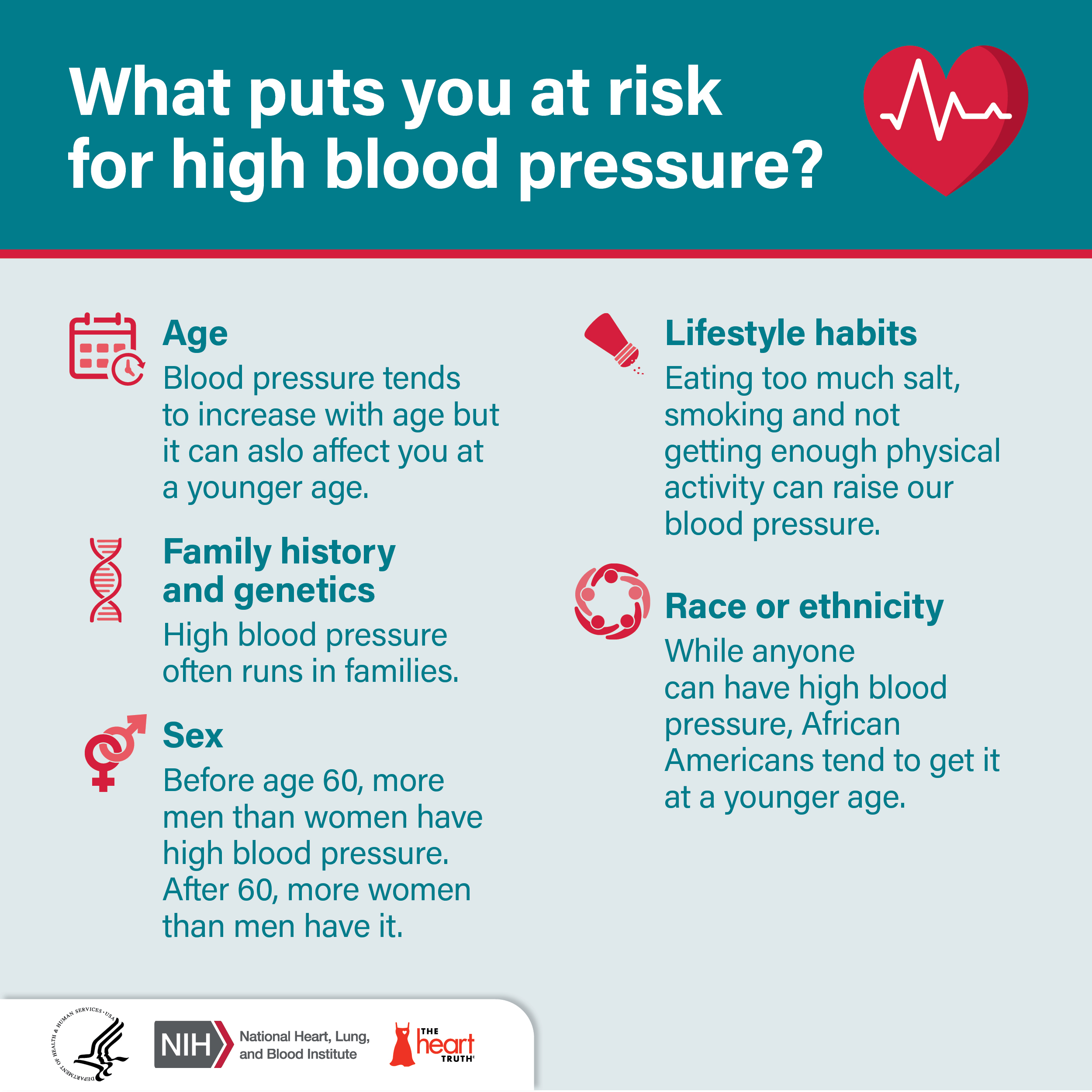

Age - Blood pressure tends to increase with age but it can also affect you at a younger age.
Family history and genetics - High blood pressure often runs in families.
Sex - Before age 60, more men than women have high blood pressure. After 60, more women than men have it.
Lifestyle habits - Eating too much salt, smoking and not getting enough physical activity can raise our blood pressure.
Race or ethnicity - While anyone can have high blood pressure, African Americans tend to get it at a younger age.


Set goals - Work with your healthcare provider to set blood pressure numbers that are healthy for you.
Take small steps - Make gradual healthy lifestyle changes.
Manage stress - Practice mindful meditation for even 10 mins. a day helps relieve stress.


Why should I change?
Stress can contribute to high blood pressure and other heart risks. If it goes on for a long time, it can make your body store more fat.
How can I change?
- Practice mindful meditation for 10 minutes a day.
- Talk with your doctor if you have trouble managing stress on your own.
- Share a funny video, joke or inspirational quote with a friend.
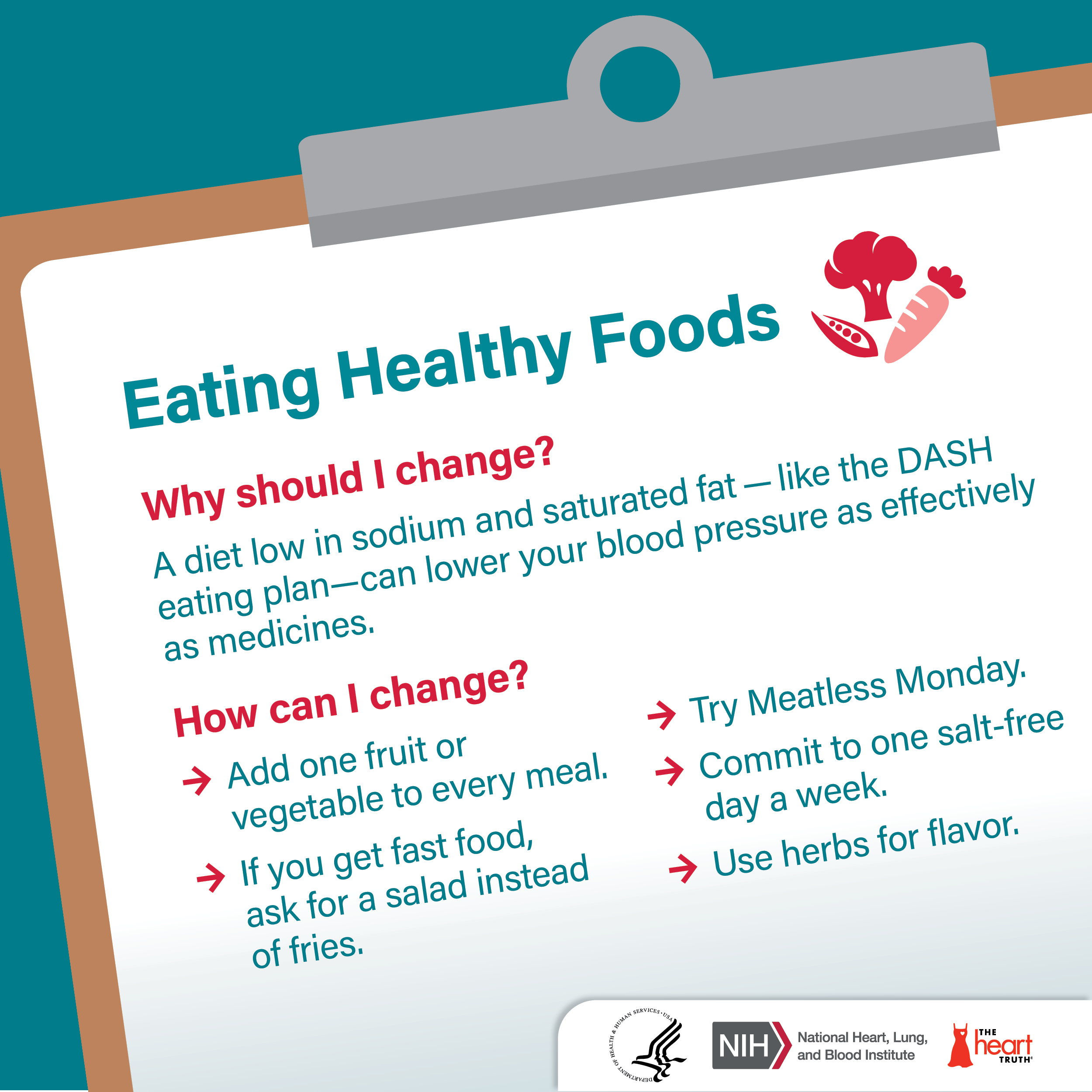

Why should I change?
A diet low in sodium and saturated fat - like the DASH eating plan - can lower your blood pressure as effectively as medicines.
- How can I change?
- Add one fruit or vegetable to every meal.
- If you get fast food, ask for a salad instead or fries.
- Try Meatless Monday.
- Commit to one salt-free day a week.
- Use herbs for flavor.
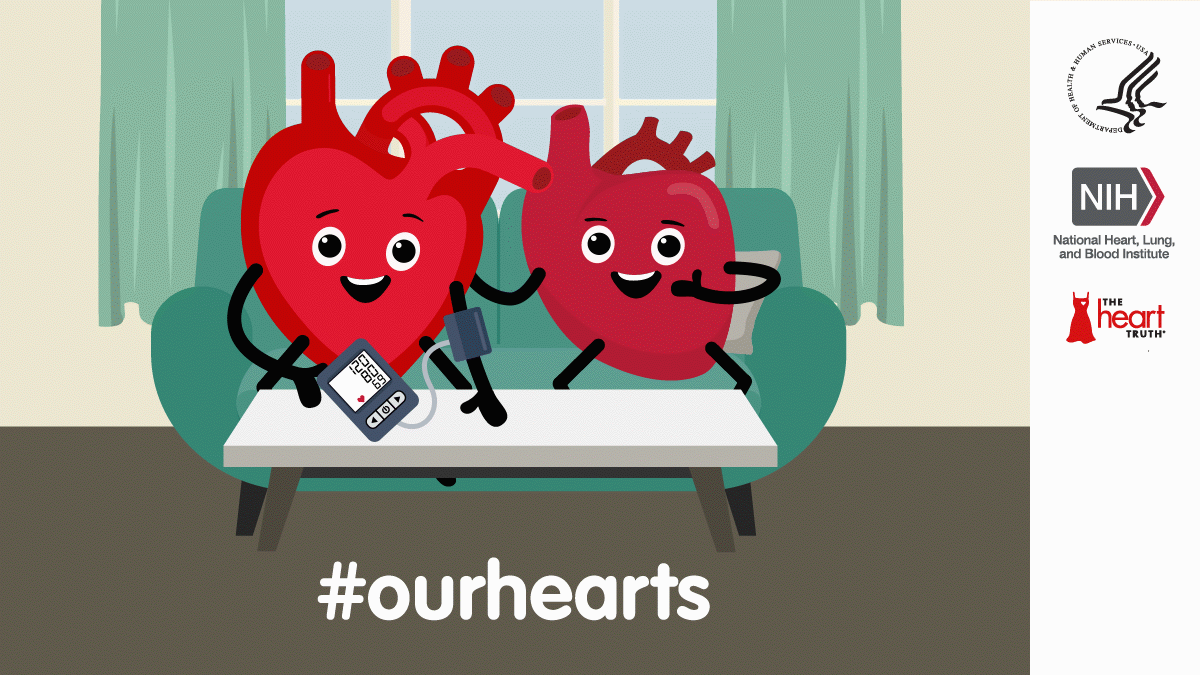

Being heart healthy is easier - together! #ourhearts


High blood pressure can go undetected for a long time while it's damaging your body. Put yourself first.
Pay attention to possible warning signs: Tiredness, loss of energy, sleep disturbances, hot flashes and sweating, fluid retention, headaches, blurred vision, chest pain - some women report their bra feeling too tight.
Have your blood pressure checked at every healthcare provider visit.


Nearly 19% of women in their 20s and 30s have high blood pressure. You don't have to be one of them. Have your blood pressure checked at every healthcare provider visit.
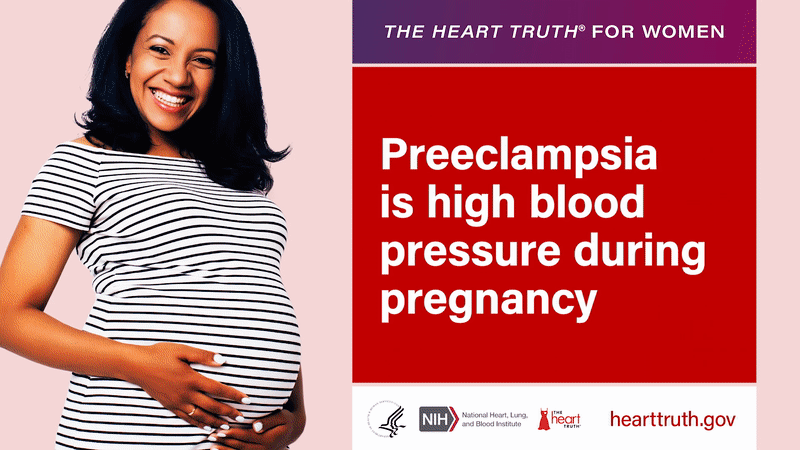

Preeclampsia is high blood pressure during pregnancy and signs your organ are not working well. It develops after 20 weeks of pregnancy. Sometimes there are no signs of it, but watch for sudden weight gain over 1-2 days or swelling in your hands or face.
Having preeclampsia increases your risk of high blood pressure, heart disease, and stroke later in life. Talk to your healthcare provider about your blood pressure.
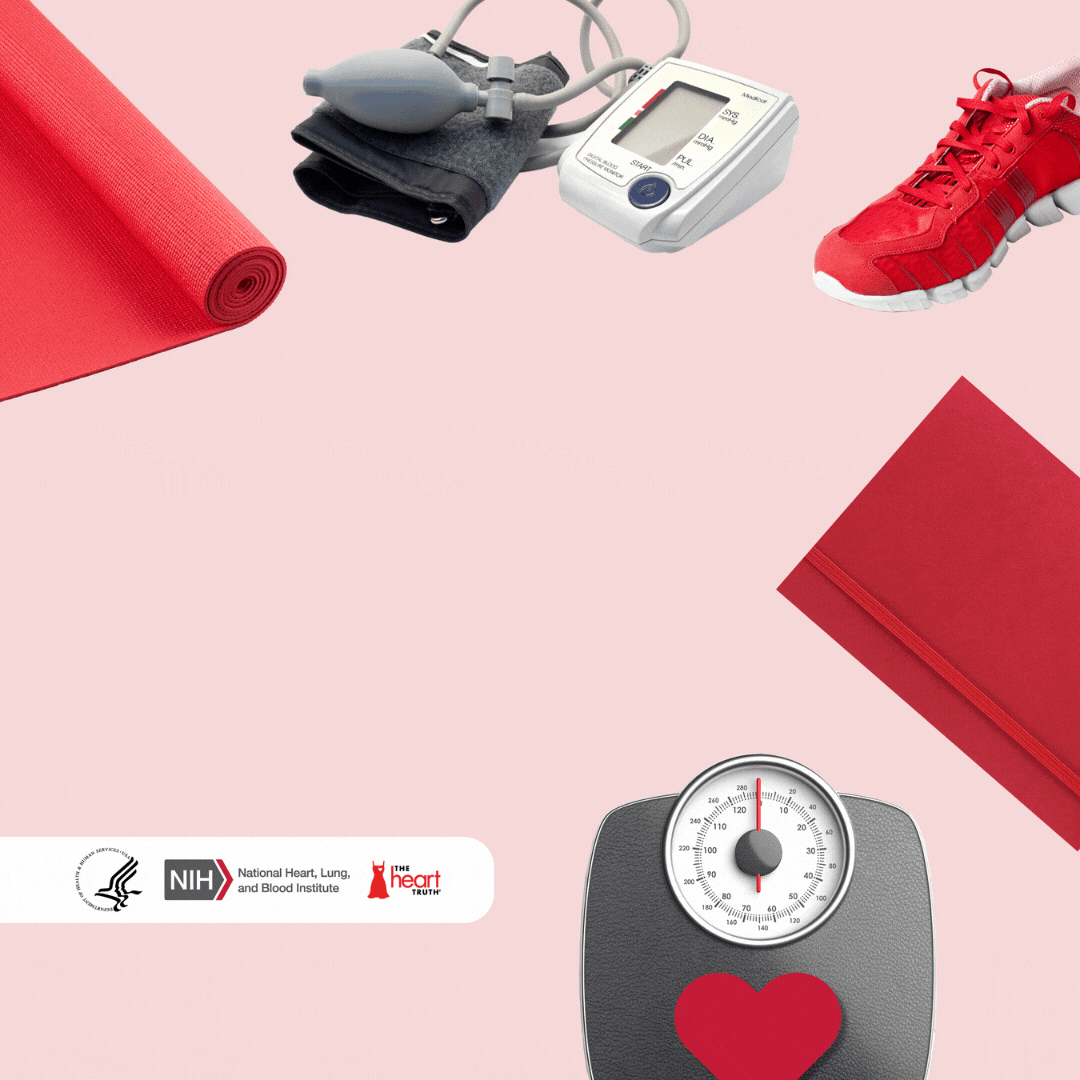

Practice self-care for your heart and control your blood pressure before, during, and after pregnancy.
The “Heart-Healthy Pregnancy Registry” spotlights items including a blood pressure monitor, notebook, scale, sneakers, and yoga mat along with a message about how they can help you manage your blood pressure.


Watch for warning signs of a heart problem, including high blood pressure, during and after pregnancy. Signs include: worsening headache, overwhelming tiredness, dizziness, trouble breathing, chest or belly pain, swelling, nausea.
If you feel like something is wrong, get medical care right away.


1. Are my blood pressure numbers in a healthy range?
2. Am I at risk for developing heart-related problems during or after pregnancy?
3. If I'm at risk, will this affect my pregnancy care or birthing plan?
4. What can I do to lower my risk for heart-related problems during pregnancy?
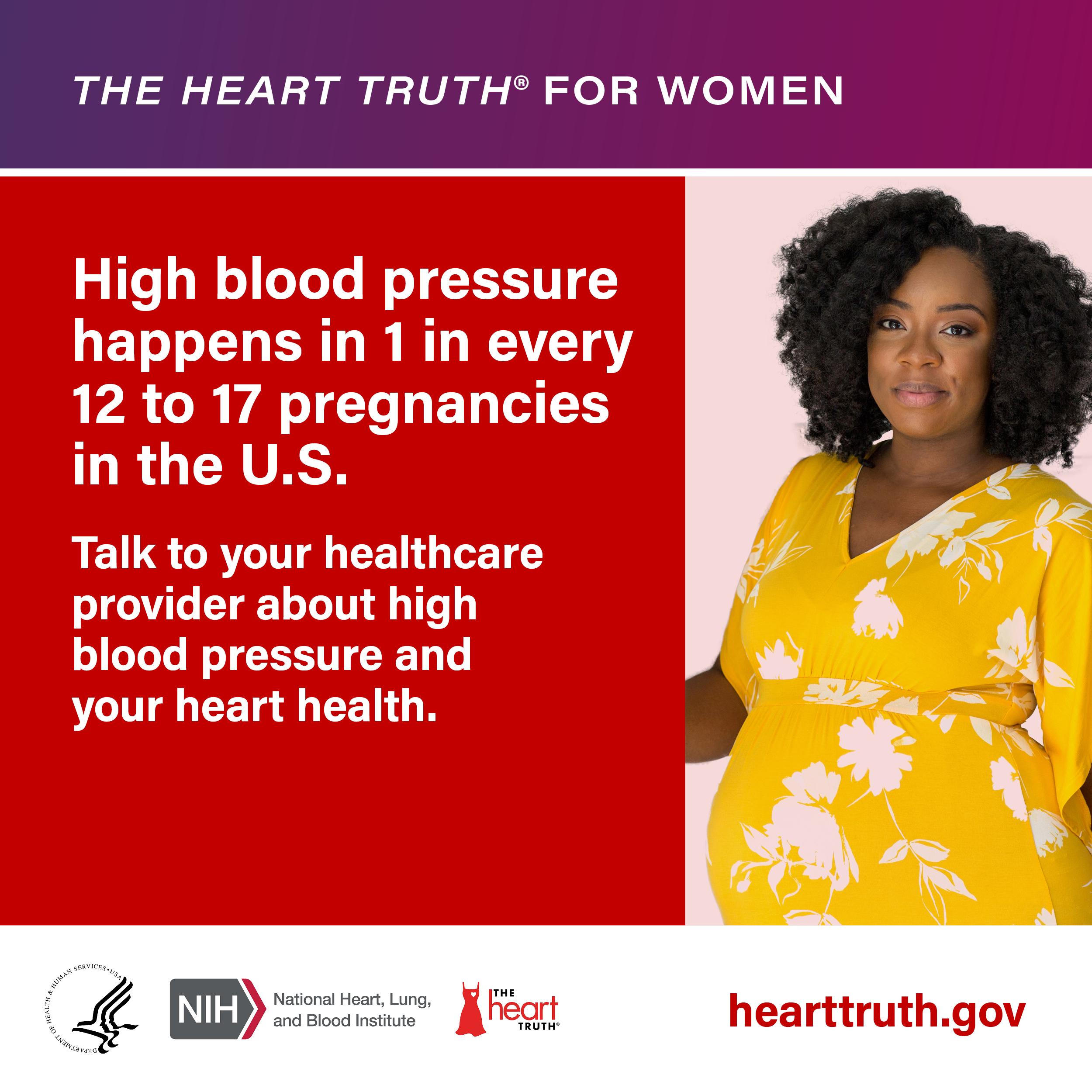

High blood pressure happens in 1 in every 12 to 17 pregnancies in the U.S.
Talk to your healthcare provider about high blood pressure and your heart health.
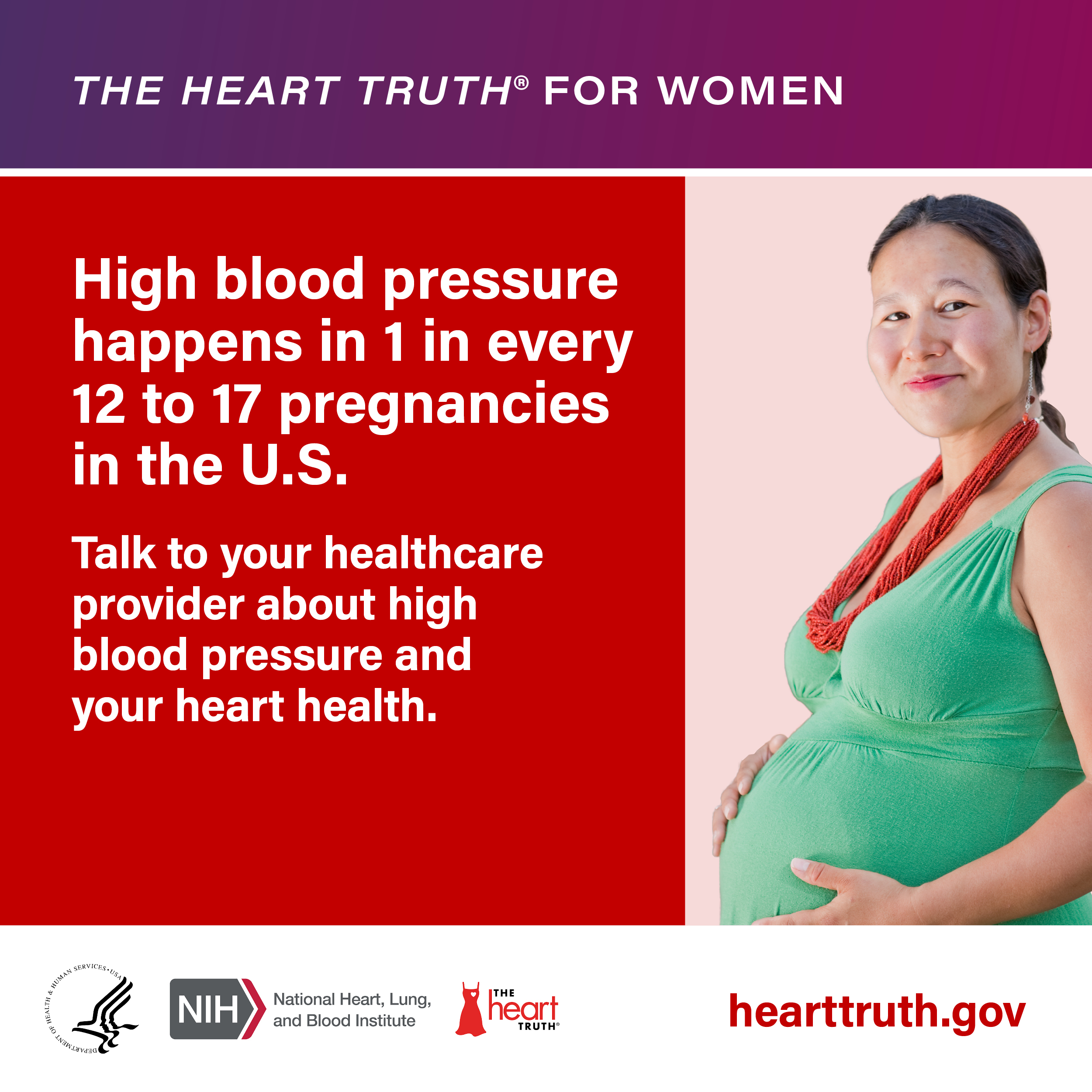

High blood pressure happens in 1 in every 12 to 17 pregnancies in the U.S.
Talk to your healthcare provider about high blood pressure and your heart health.
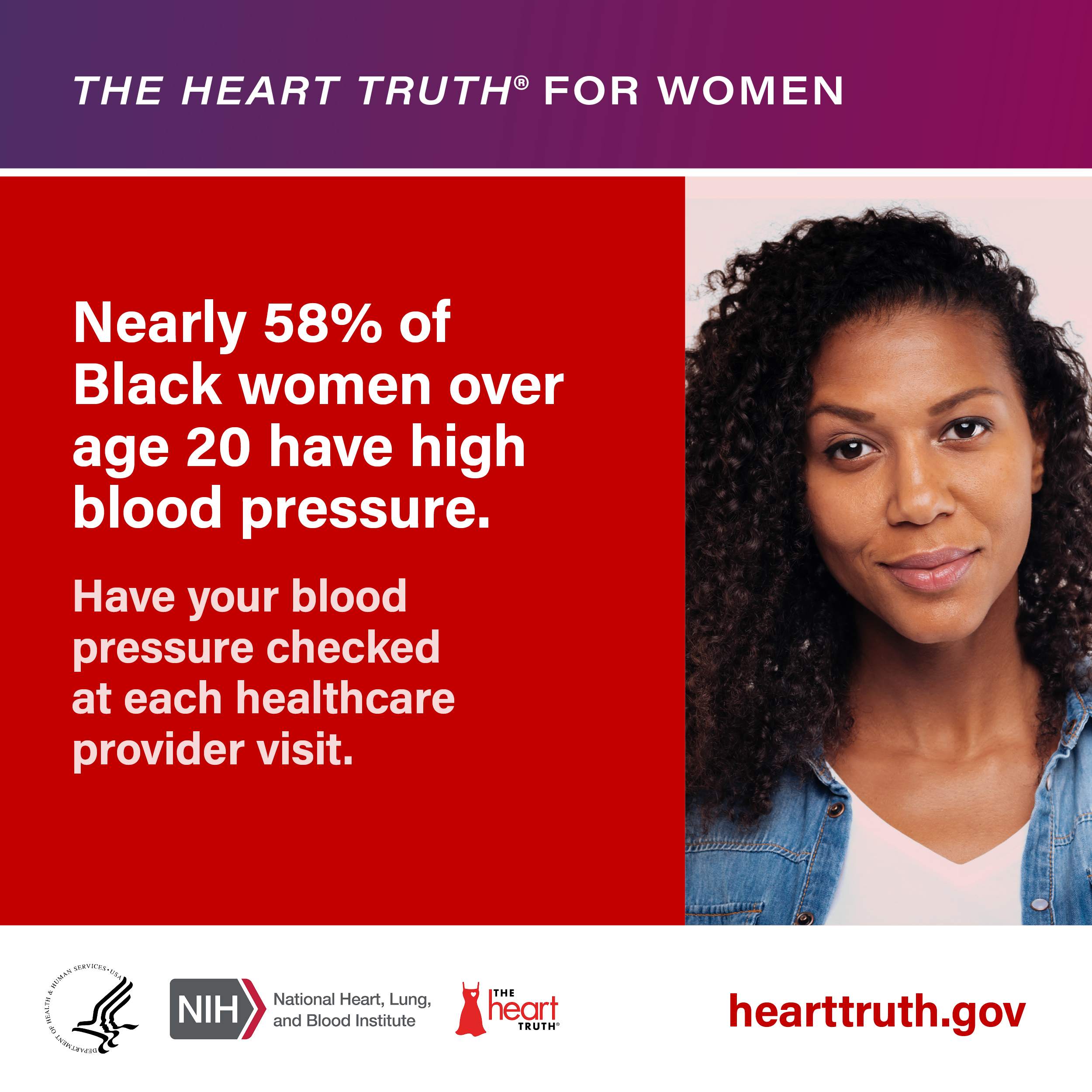

Nearly 58% of Black women over age 20 have high blood pressure. Have your blood pressure checked at every healthcare provider visit.


About 35% of Hispanic/Latina women have high blood pressure. Have your blood pressure checked at every healthcare provider visit.
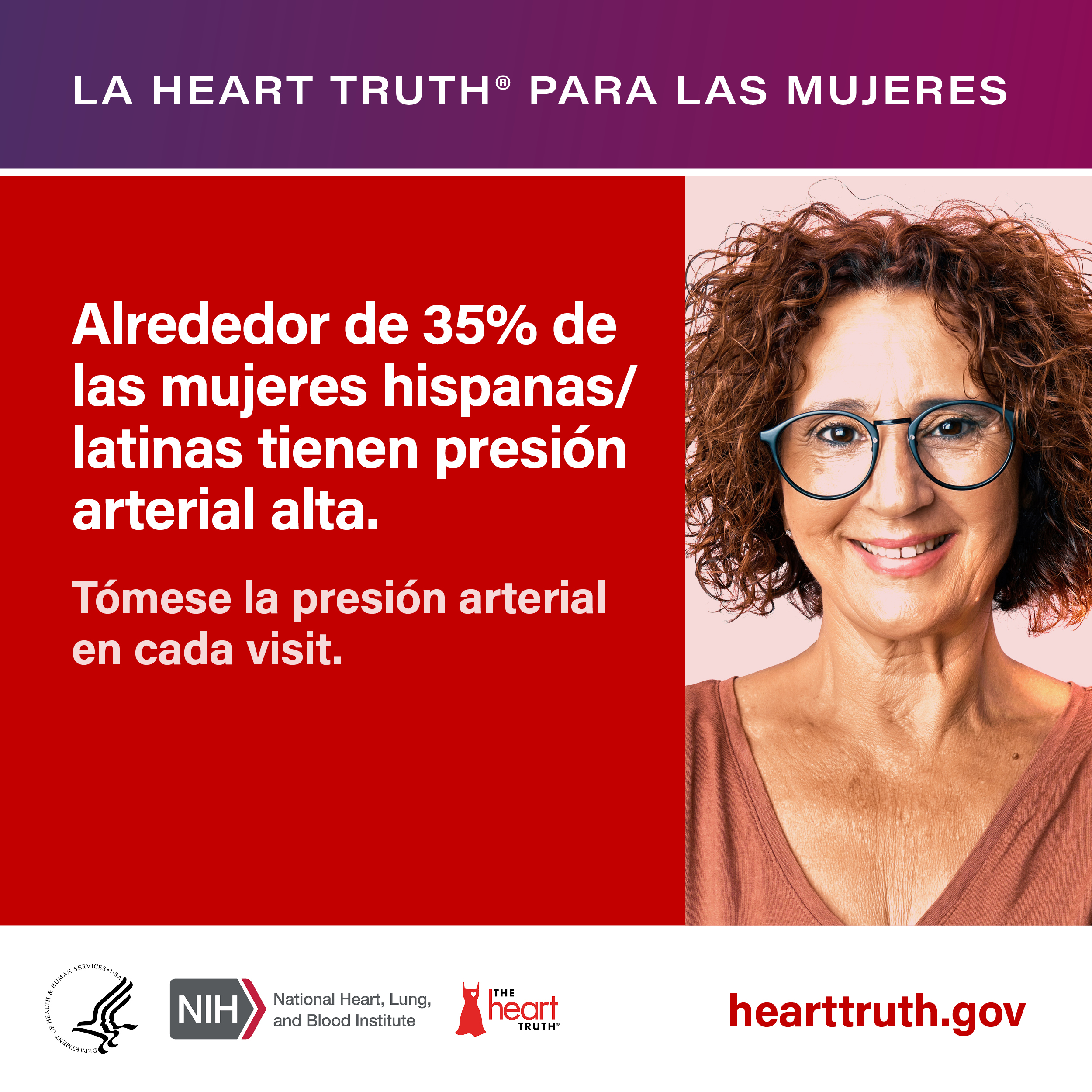

Alrededor de 35% de las mujeres hispanas/latinas tienen presion arterial alta. Tomese la presion arterial en cada visit.


It's never too early to start thinking about your blood pressure. Have your blood pressure checked at every healthcare provider visit.

